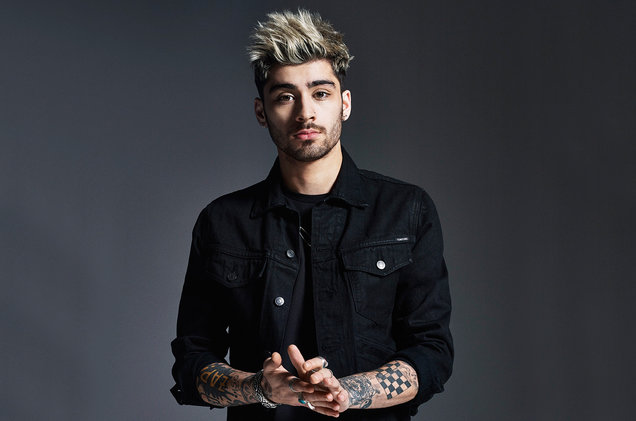
By Guest Contributor: Lakshmi Gandhi (@LakshmiGandhi)
It’s been a whirlwind fifteen months for Zayn Malik, the suave tenor who first rose to fame as a member of One Direction. In March 2015, he stunned teens everywhere when he abruptly left the boy band that first made him a household name. Since then, he’s had an extremely public breakup, released a new album, began a new relationship with a supermodel, and was subject to a bizarre and racist tirade from rapper Azealia Banks.
That’s a lot for any early 20-something to handle, let alone one who must process everything in the public eye. Last week, Malik revealed that in addition to everything else mentioned above, he was also struggling with severe bouts of anxiety.
Just before he was to perform in the UK on Saturday, Malik tweeted this statement from his official account.
— zayn (@zaynmalik) June 11, 2016
“Unfortunately my anxiety that has haunted me throughout the last few months has gotten the better of me,” part of the statement reads. “With the magnitude of the event, I have suffered the worst anxiety of my career. I cannot apologise enough…”
His girlfriend Gigi Hadid immediately tweeted out her own message of support.
https://twitter.com/GiGiHadid/status/742026900059619335
Twitter can often be a cruel place, particularly for people who live at least a part of their lives in the public eye. Despite Twitter’s hostile reputation, Malik’s fans were quick to surround the singer with support. If you want to see something truly earnest and encouraging, check out the replies to Malik’s original tweets — they range from fans sharing their own experiences of therapy, to recommendations for meditation apps, to bits of encouragement.
For longtime Zayn watchers (and I include myself here), Malik’s announcement also made many of his past actions a bit clearer. When he made the momentous decision to leave One Direction last year, it was clear that he badly wanted to reset his career (and life.)
“I am leaving because I want to be a normal 22-year-old who is able to relax and have some private time out of the spotlight,” he said in his stunning statement from last year, announcing his departure.
It’s not often that you see celebrities openly discuss anxiety and other mental health issues. Similarly, boy band members rarely jump ship at the height of their fame even if they might instinctively realize something isn’t right.
Dealing with these issues can be particularly hard if you grow up in communities that traditionally shun discussing anxiety and depression. The BBC found that people of South Asian descent in Malik’s native Britain were far less likely to receive treatment for mental health issues.
As one health advocate noted, South Asians “don’t want mental problems in the family to be exposed. They want to hide it, to preserve the family image and status.” Many young Asian Americans can probably relate. (For more information on mental health issues within the Asian American community, check out this post.)
Despite widely held stigmas, clinical anxiety is a medically recognized mental health disorder, and its paralyzing symptoms might be felt in isolation or in conjunction with the symptoms of clinical depression. Yet, too often, members of the Asian American community are reluctant to find help because of our communities’ persistent stigmas against mental illness. We do not, as a community, talk frankly about mental health, and so individuals struggling with symptoms of depression and anxiety are not encouraged to prioritize their mental care. Hopefully, Malik’s disclosure and the waves of empathy that resulted will encourage other young South Asians and South Asian American to seek out help when they need it.
Malik himself seems to be developing a personal system that prioritizes self-care. ‘I’m just staying the way that I am. I think that’s the best way to keep your sanity,” he told an interviewer on Sunday. “You’ve got to hold on to what you are and not let things get to your head, because if you do, that’s when everything comes crashing down terribly.”

Lakshmi Gandhi is a journalist and pop culture writer based in New York. Her work has appeared in Metro New York, NBC Asian America and NPR’s Code Switch blog, among other sites. She likes it when readers tweet her @LakshmiGandhi with their thoughts on Asian American issues and romance novels.
Learn more about Reappropriate’s guest contributor program and submit your own writing here.
Here are a few other resources for you if you are an Asian American who is, or thinks you might be, battling depression, anxiety, and/or other mental health concerns:
If you or someone you know is contemplating suicide, call:
- 1-800-273-8255 (TALK), 24hr National Suicide Prevention Hotline, >150 languages available
- 1-877-990-8585, 24hr Asian LifeNet Hotline, Cantonese, Mandarin, Japanese, Korean, Fujianese available

